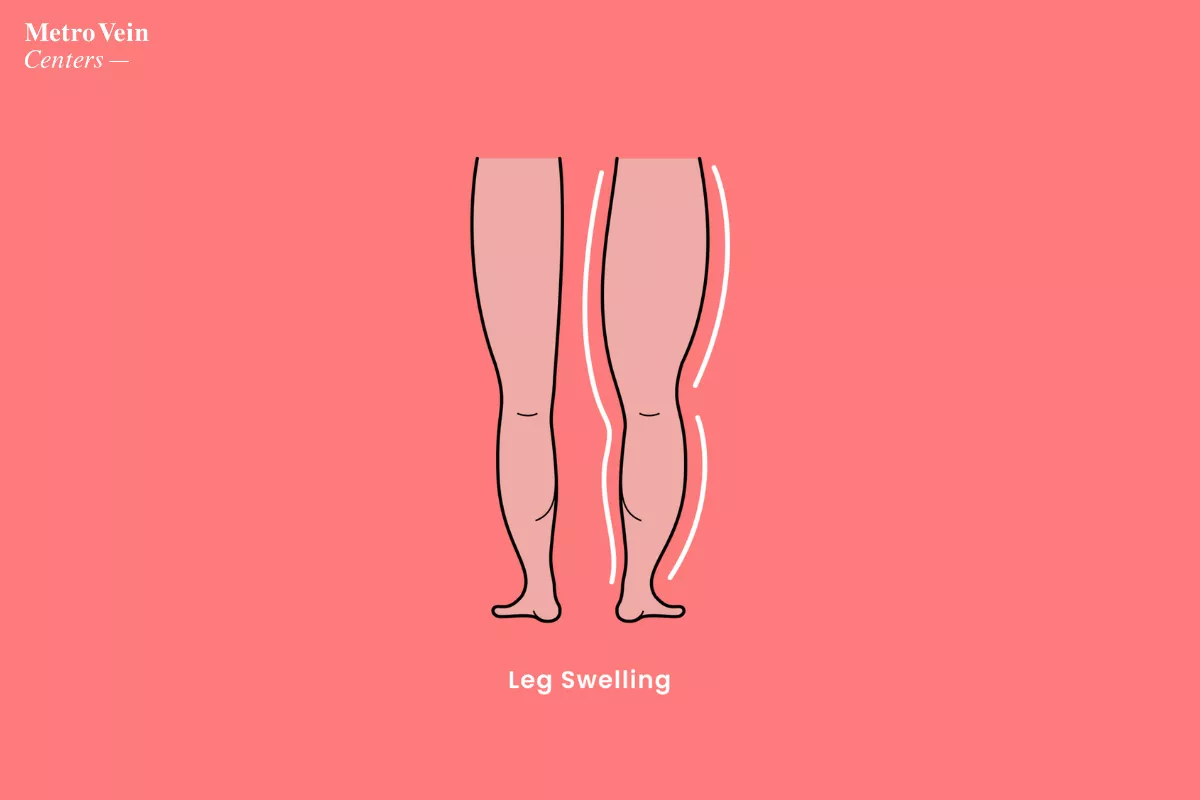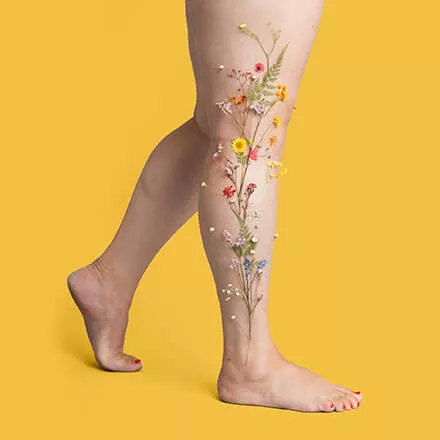Lymphedema is a condition characterized by swelling in the legs, arms and/or other body parts due to the build up of protein rich-fluid (lymph) as a result of an obstruction or overload of the lymphatic system. When lymphedema occurs in the legs, it is oftentimes associated with vein disease. Although these chronic conditions do not always walk hand-in-hand, it's understandable why patients suffering from varicose veins may wonder if their venous concerns stem from their lymphatic system (the drainage system of the body). Likewise, patients who struggle with lymphedema may be curious about whether their swollen legs are connected to varicose veins.
How do these two conditions relate and work together to affect your circulation? Kick up your feet (mainly because you deserve to, but also because it will help with swelling) and keep reading to learn more!
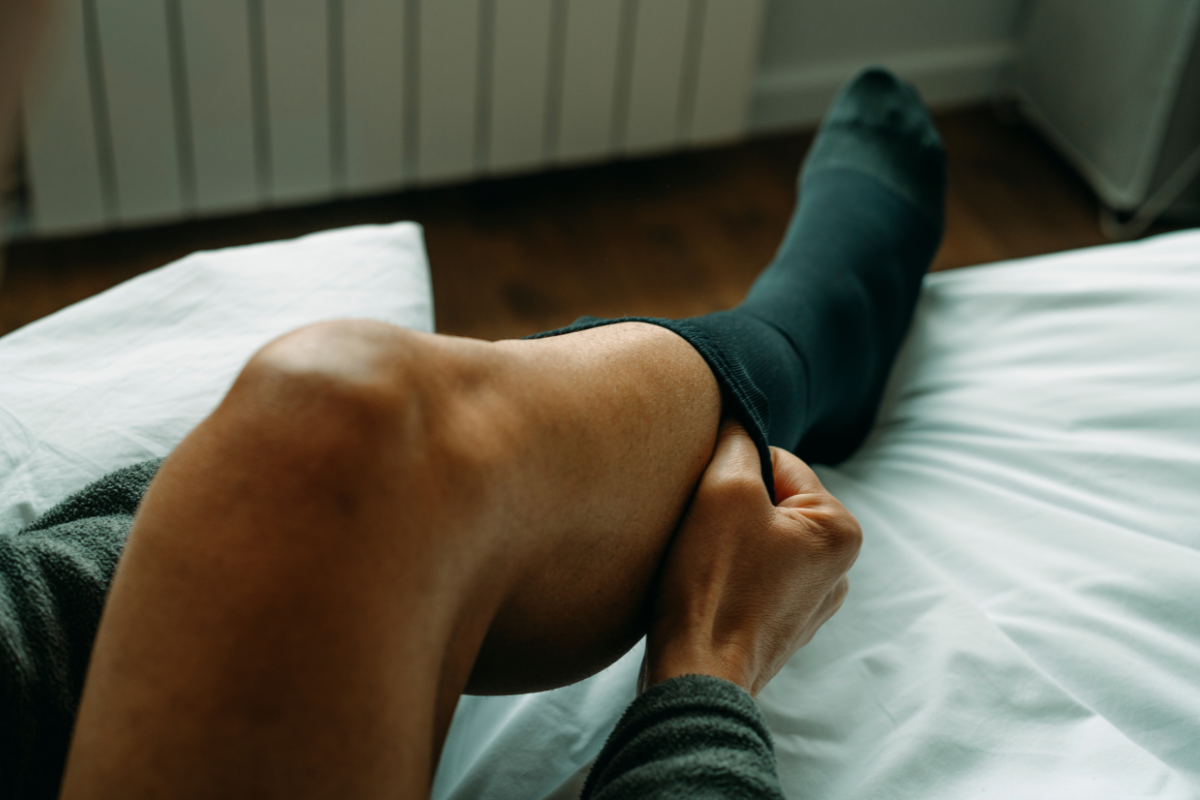
Lymphedema and Your Legs
Lymphedema doesn't exclusively target the legs. This condition can cause swelling in the arms, genitals, abdomen, face, and other body parts. That said, it does tend to primarily affect the legs and arms. In a well-functioning lymphatic system, protein-rich lymph fluid is regularly drained and siphoned away from extremities. Those with lymphedema, however, experience a slight hiccup in the process: their lymph system is blocked or overloaded, which causes fluid to collect and linger in the limbs. The retention of excess fluid can cause tissues to swell. Swelling in the legs is often quite uncomfortable, and causes sensations of heaviness and aching in the legs. Moving these "waterlogged" limbs is laborious and can cause chronic fatigue, eventually leading to a sedentary lifestyle. It's much easier to lay down than it is to carry excess "water weight" around, and after long periods of standing, many lymphedema patients are left aching for rest.
Lymphedema can cause:
- Skin infections known as cellulitis
- Weeping (fluid leakage through the skin)
- "Dented" or "pitted" skin that leaves behind a dimple when touched (like when poking fresh dough)
- Skin changes such as darkening or reddening of the skin
- Thickening of the skin, which can harden to resemble the skin of an elephant
- Firming and tightening of the skin, limiting movement (especially at the joints)
Lymphedema symptoms can be alleviated with the use of compression stockings, regular light exercise, leg elevation, and a diversified diet. At times, lymphatic massage and/or lymphatic pumps may also be utilized to help relieve painful or uncomfortable symptoms.
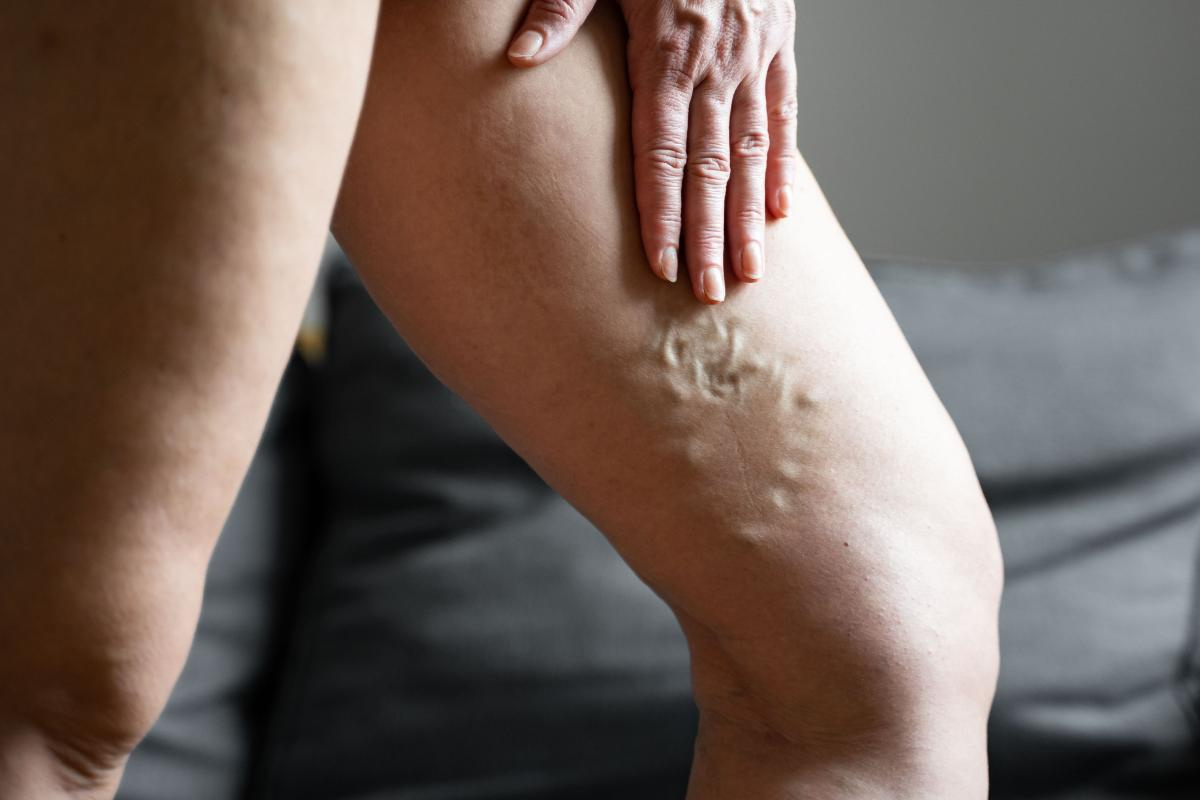
Vein Disease and Leg Swelling
Vein diseases like varicose veins can eventually lead to edema or swelling in the legs. When vein valves malfunction, they are unable to promote the steady one-way flow of blood from the feet back up to the heart. Instead, the blood flows backwards, leading to poor circulation, increase in venous pressure, and distortion of the veins -- which is why visible varicose veins on the legs often appear like bulging, twisted cords of rope beneath the skin. From there, inflammation and leaky veins ensue in the surrounding tissues, leading to fluid collection which causes swelling. The lymphatic system, which is the drainage system of the body, works to remove the fluid. When it gets overloaded or damaged, lymphedema develops.
What are the Risk Factors for Vein Disease and Lymphedema?
Vein disease is more common than you think! It impacts 1 out of every 3 people, even those who are otherwise extremely healthy. A variety of risk factors can contribute to the development of vein disease, including:
- Age: People over 40 are more likely to develop varicose veins.
- Sex/gender: Women are affected by vein disease more often than men.
- Pregnancies: Gestation adds pressure on the veins, increases hormones that relax vein walls, and reduces valve function. It also causes an increase in blood volume, putting a pretty big strain on the circulatory system.
- Use of hormonal birth control may also increase your risk of developing blood clots.
- Family history: Your genetics may be to blame, especially if others in your family have varicose veins.
- Injury: Trauma to the legs, from accidents or invasive surgeries like joint replacements, can lead to venous issues.
- Sedentary lifestyle and excess weight: A lack of regular, low-impact exercise can lead to malfunctioning vein valves and the appearance of visible varicose veins on the legs. Additionally, excess weight adds pressure on the veins.
Some risk factors for the development of lymphedema include:
- Cancer or cancer treatment, including (but not limited to) chemotherapy
- Infection: Note that lymphedema itself also increases risk of infection (talk about a vicious cycle!)
- Genetics: Lymphatic system structure can cause issues with lymphatic drainage
- Injury: Injuries that affect the lymph nodes may result in poor drainage
- Sedentary lifestyle and excess weight: Pressure on the lymphatic system can impede lymph drainage
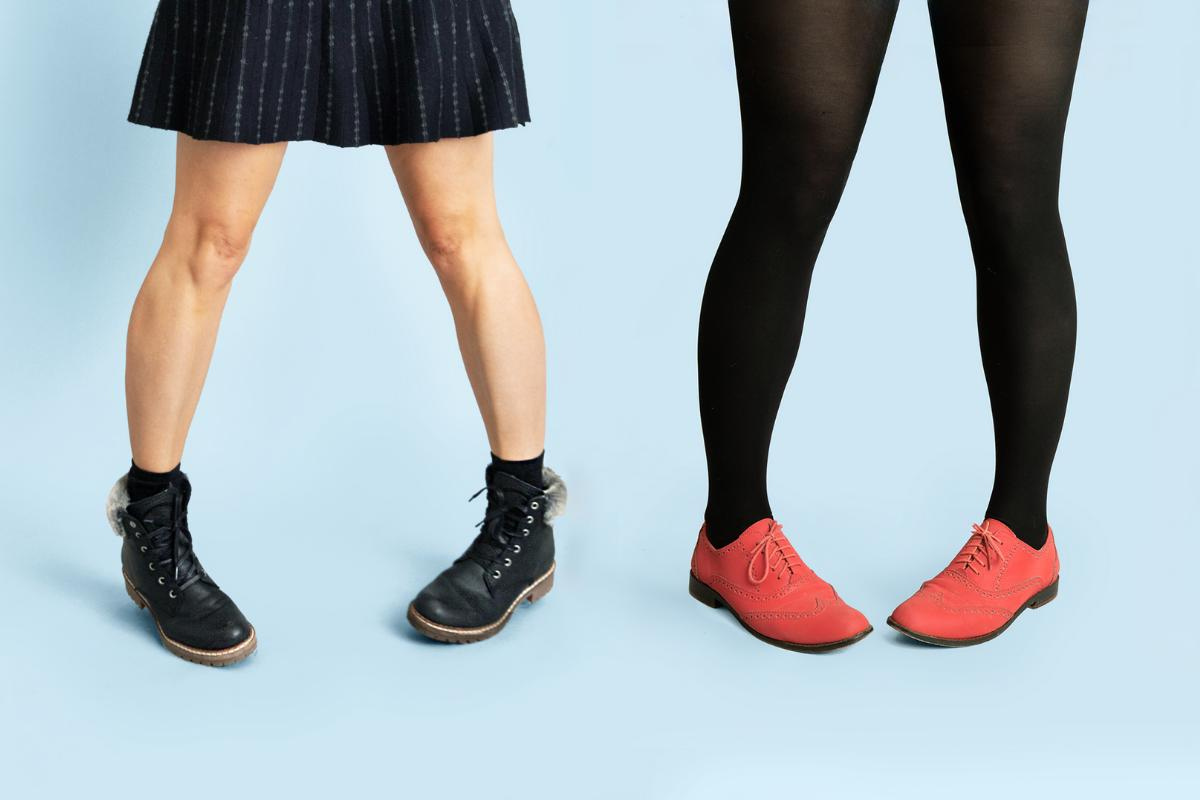
How Lymphedema and Varicose Veins Impact Each Other
Lymphedema and vein disease will oftentimes present together, especially when vein disease is present first. Inflammation from long standing vein disease negatively impacts the lymphatic system, and over time can lead to lymphedema. On the other hand, the weight of lymphedema due to excess fluid in the tissues, can cause the legs to feel heavy and weighed down. This in turn can make it increasingly hard to be physically active, therefore contributing to a sedentary lifestyle (which is a prominent risk factor for the development of vein disease). The symbiotic relationship between vein disease and lymphedema can create a perfect environment for each issue to develop and thrive.
Having varicose veins does not mean you will develop lymphedema or vice versa, but it's important to note how the conditions may cause each other to develop or worsen. As both lymphedema and varicose veins are progressive, early diagnosis and treatment is crucial for both conditions. It can't hurt to get your veins checked if you have been diagnosed with (or suspect you may have) lymphedema.
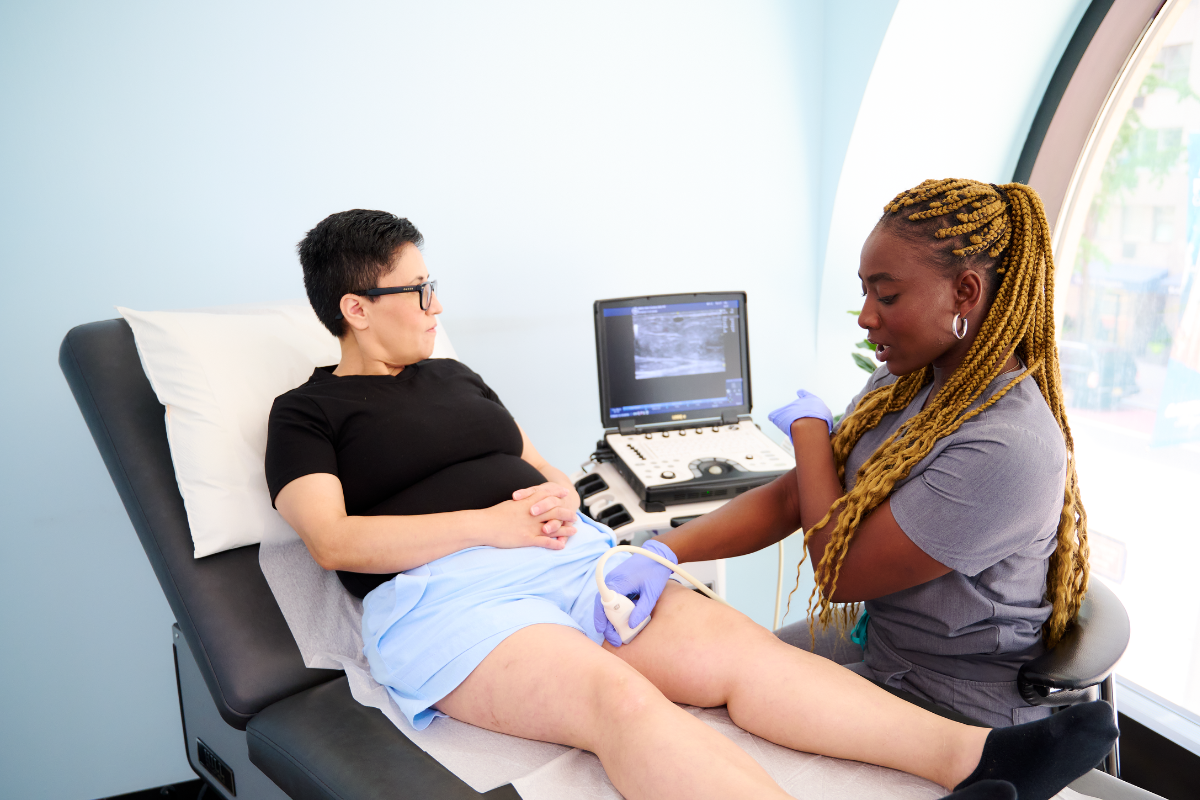
Minimally Invasive Treatments
Both varicose veins and lymphedema worsen over time if left untreated. Leaving lymphedema unchecked can negatively impact your mobility, comfort levels, and cause unnecessary pain from the swelling and stretching of your skin. Leaving vein disease untreated can lead to more severe symptoms, such as restless legs that keep you awake through the night, weeping venous ulcers (and an increased risk of infection from the open wound), or even blood clots and deep vein thrombosis (which can be fatal if deep blood clots travel to the lungs, causing pulmonary embolism). Luckily, a wide variety of treatments are available, and they're often covered by insurance!
Minimally invasive vein treatments are readily available following a free vein evaluation in any of our 40+ Metro Vein Centers vein clinics. Our vein specialists will evaluate your legs, symptoms, and concerns to customize a comprehensive varicose vein treatment plan that is right for you. Treatments are completed in-clinic in about 30 minutes, and most patients experience noticeable symptom relief as quickly as their first visit. Further, treatment can help your self-esteem, as the majority of our patients experience aesthetic improvements within 2-4 appointments!
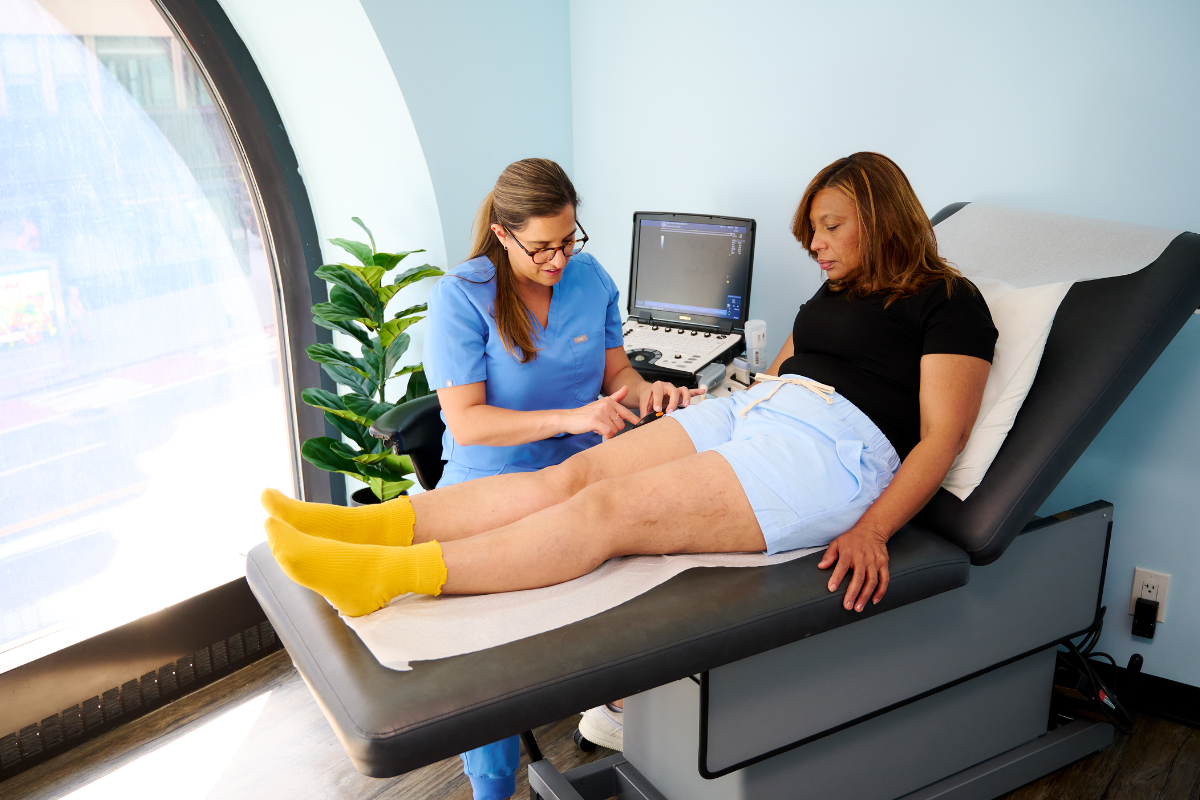
Although we do not specifically treat lymphedema in our vein clinics, we can certainly help with leg swelling caused by vein disease. We'll help you find meaningful relief from painful or uncomfortable symptoms beyond swelling, too! Aching, heavy legs, poor circulation, and tingling sensations caused by vein disease can also be remedied by minimally invasive vein care.
Come in for a vein evaluation in any of our New York, New Jersey, Connecticut, Michigan, Texas, and Arizona vein clinics, where you can speak with a vein specialist directly about your swollen legs. We accept over 200 insurance plans, and our patient care team is happy to confirm your coverage options with you once your treatment plan has been outlined. After most treatments, we provide compression stockings, which are also used to treat lymphedema! Give us a call at 866-744-0238 if you have any concerns about swollen legs, ankles, and/or feet, and especially if you have been living with pain and discomfort. We're here to help you get back to healthy, happy legs!

Metro Vein Centers Editorial Team
From vein care 101 to treatments, the Metro Vein Centers blog offers patients everything they need to know about vein health.

Trusted insight from the nationally accredited, board-certified vein doctors at Metro Vein Centers.


